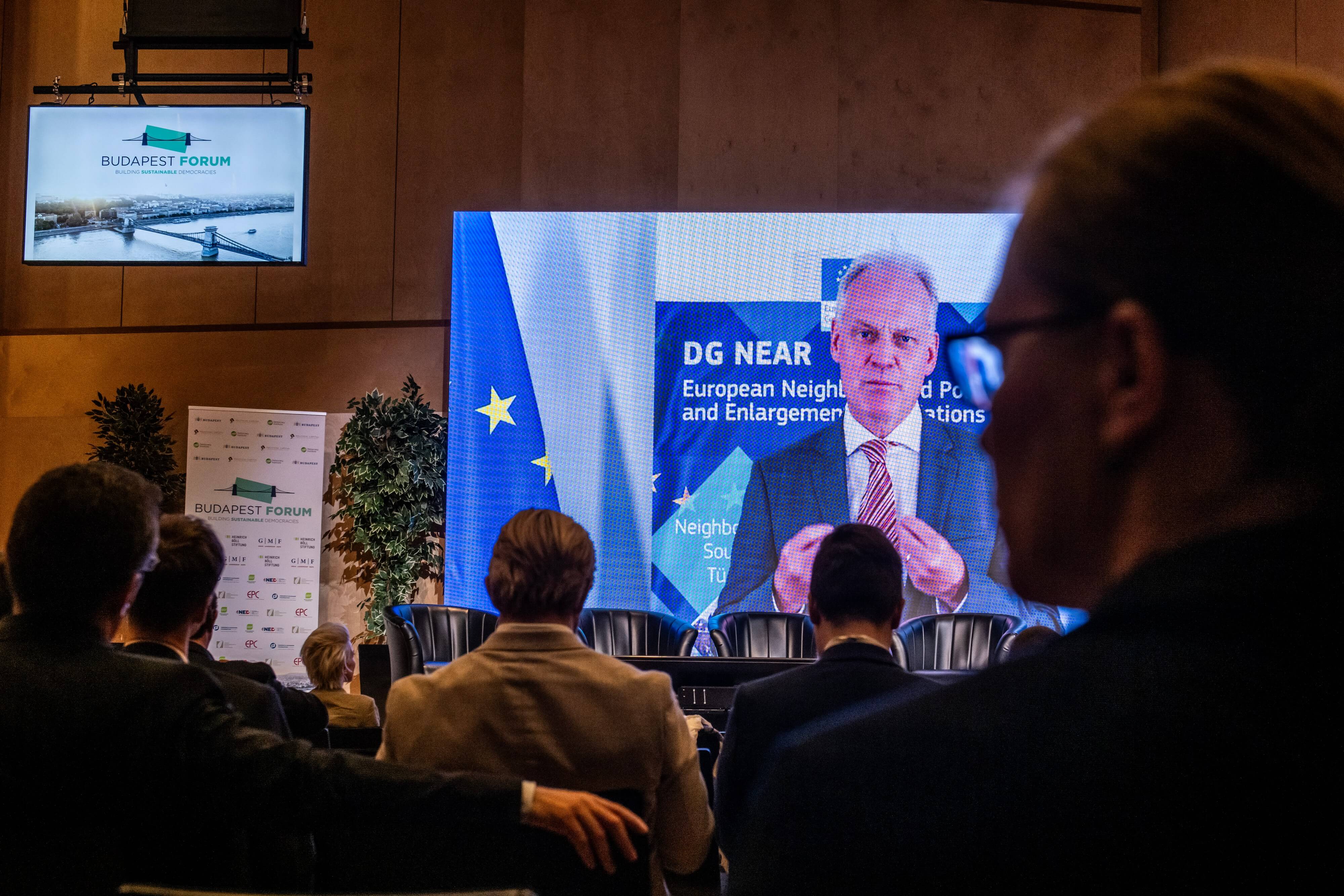The Future of Europe in Light of the EU Enlargement: Challenges, Opportunities and Reforms
2024-09-26
Keynote Speech:
Gert Jan Koopman – Directorate-General for Neighbourhood and Enlargement Negotiations

Main takeaways:
- 20 years have passed since the largest EU enlargement. Further enlargements are at its core. The EU has an inclusive approach to enlargements, tailoring the support to every country, to make sure they have a smooth process.
- The EU also works internally to be fit to the enlargements by reviewing their policies, values, budget and government. This is to make sure that both the EU and the new states are ready for accession.
- As von der Leyen said, the EU must widen as it deepens.
Participants:
- Donika Emini – Director, CiviKos Platform
- Péter Balázs - Former Minister of Foreign Affairs, Hungary; professor Emeritus, Central European University
- Sergey Lagodinsky – Member of the European Parliament, Greens/European Free Alliance (online)
- Thu Nguyen – Deputy Director, Jacques Delors Centre
- Moderator: Klaus Linsenmeier – Director, Heinrich-Böll-Stiftung Prague

Main takeaways:
- Enlargement and democratization were going hand in hand, but recently the two trends diverged.
- Enlargements are not necessarily about values anymore. Enlargements are becoming something completely different: the goal is not full political integration anymore; it is more about pragmatic enlargement.
- Germany signing the lithium agreement with Serbia goes against the values.
- Hungary and Poland are pushing more for enlargement in the Western Balkan to have more autocrats on board.
- Ukraine was supposed to be part of an enlargement and yet nothing really happened.
- Enlargements are not necessarily about values anymore. Enlargements are becoming something completely different: the goal is not full political integration anymore; it is more about pragmatic enlargement.
- Hungary would not be able to join the EU now because of its illiberal democracy.
- What does the EU need to do for the enlargement? How can the EU prepare for it? The EU also has obligations to be able to absorb new member states according to the Copenhagen criteria. The three largest areas of absorption capacity are: rule of law, capacity to act and the budget.
- How can they prevent countries from “Hungarization”?
- Question of smaller member states: how can their representation remain visible?
- Budget is already an issue; with new member states it might become more challenging.
- How can the EU effectively change/review its policies, budget etc. when leadership is fading?
- There is a revival of enlargement as an instrument for European policies regardless of the elections. The reason is the Russian aggression in Ukraine.
- Germany should have taken a stronger stance, and Eastern and Balkan countries have taken a more important role. The EU became a geopolitical union. The outlook is more to the East and not to the South.
- Moldova, Georgia, Ukraine and Armenia are the new candidates. Unanimity is needed for accession, which might be a problem in some cases.
- The new EP did not change anything about enlargement. The spirit will remain, the Council might be a bigger problem – leading to deadlock.
- Because of lack of leadership in the EU and its pace, in 2035 we will still be talking about the same enlargement issue. Moreover, the EU is subsidizing autocrats with EU money, such as Vucic. The EU has to be blunter, but Western Balkans have no “appetite” for reform.
- Even though the EU has been constantly growing, the activities and competencies are not growing with it.
There was a debate about the seriousness of the EU’s willingness for enlargement.
Policy recommendations:
- To strengthen the EU’s leadership.
Copyright 2026. Political Capital Policy Research and Consulting Institute, all rights reserved.

